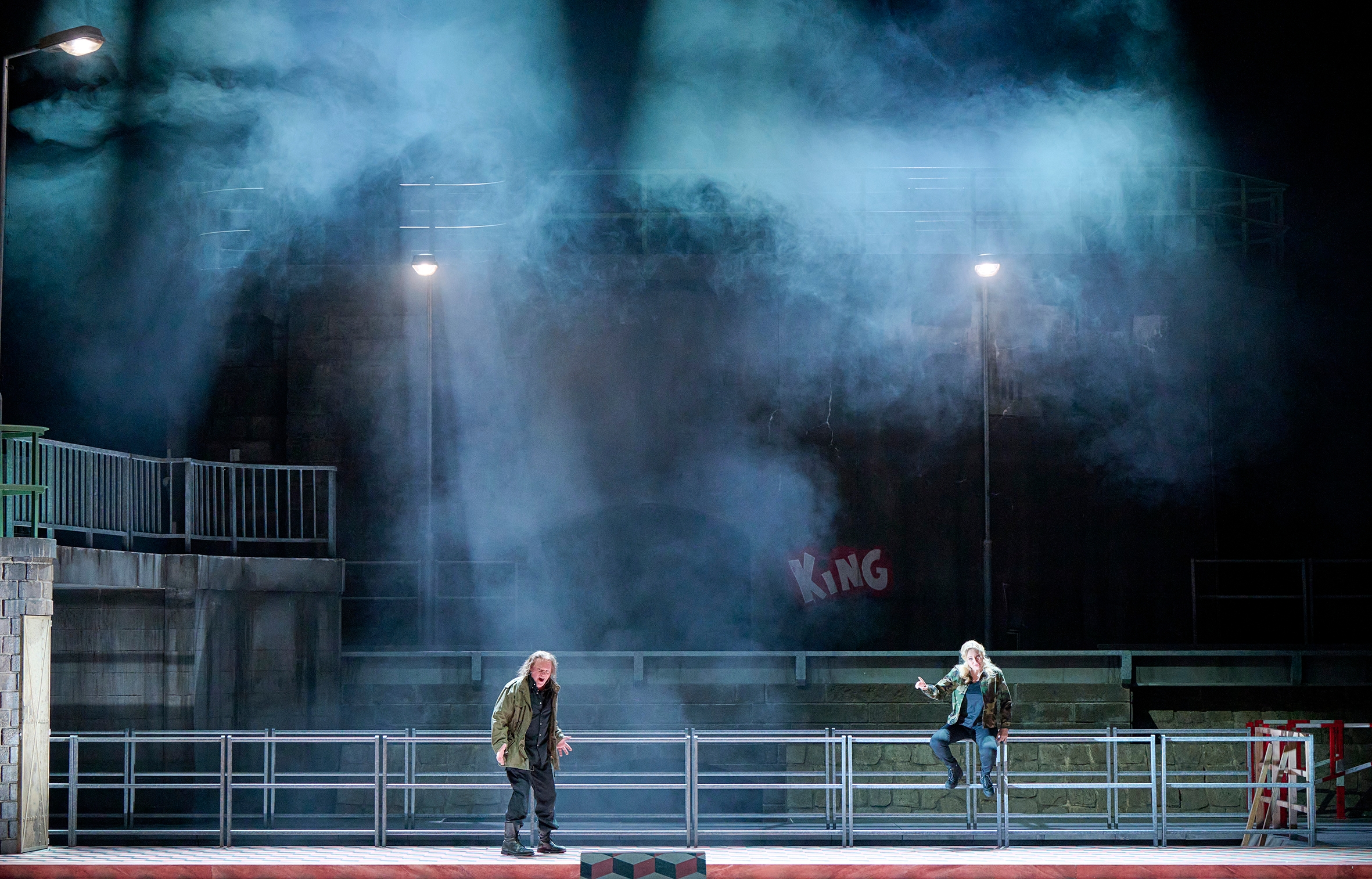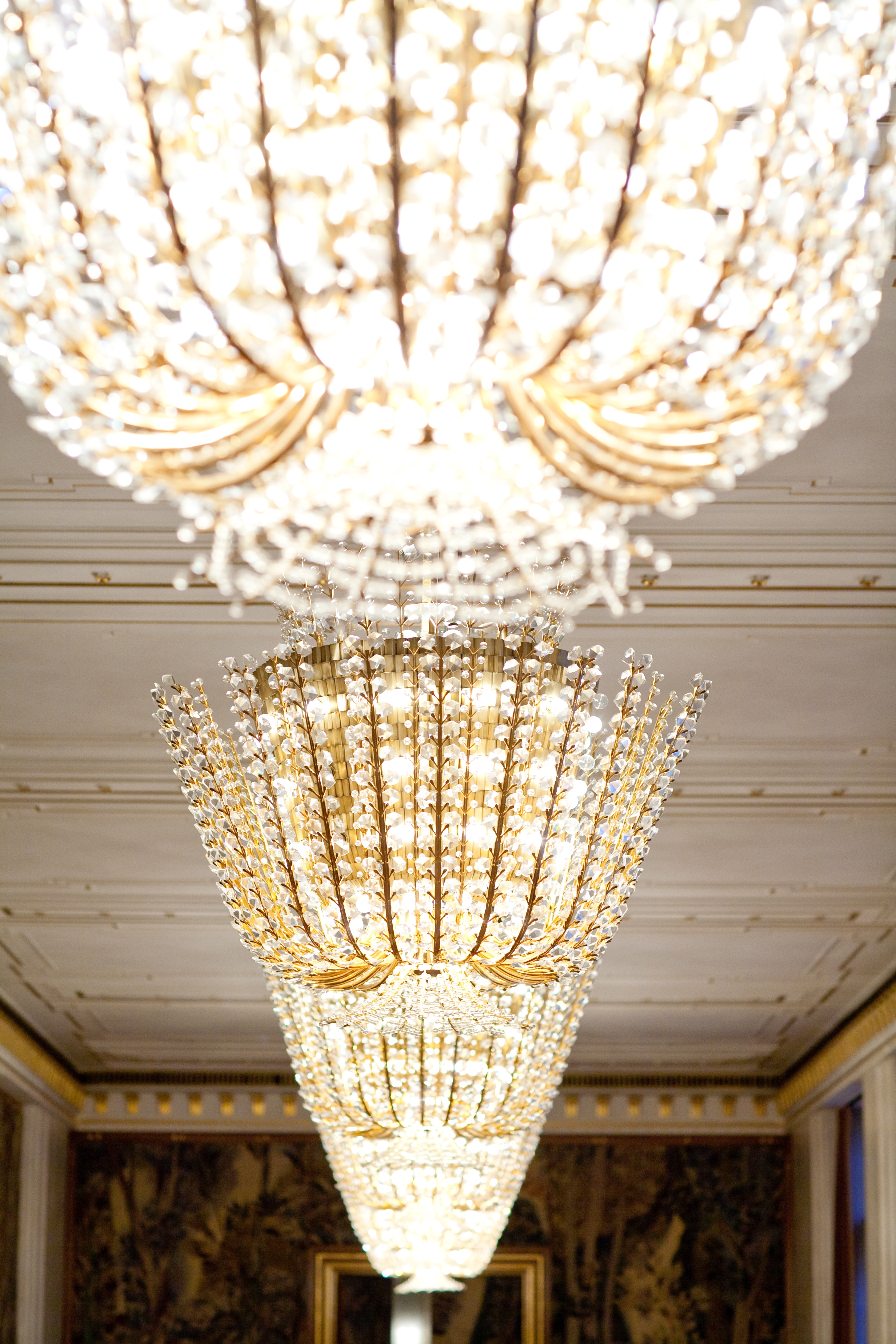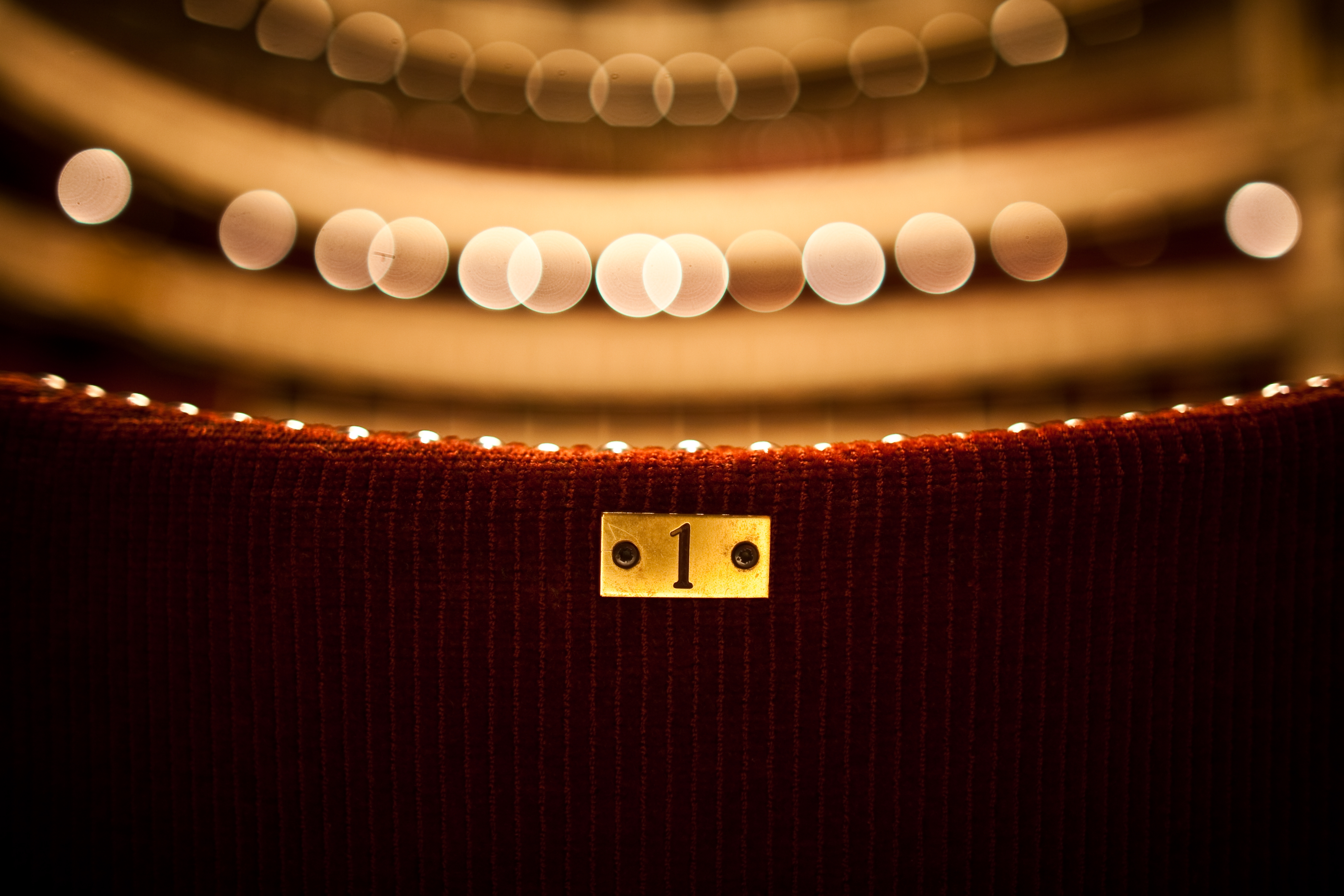
Short Summary
Once upon a time there was a king who died and left behind two children, a son and a daughter.
But the daughter was a year older than the son. And one day the two royal children argued with each other about which of them should be king, for the brother said, 'I am a prince, and when there are princes, princesses do not get to reign But the daughter objected: 'I am the first-born and the eldest, I should take precedence
Lohengrin
Storyline

King Henry's Saxon army marches into the Duchy of Brabant on the banks of the Scheldt. The leaderless neighboring country is to join Henry's campaign against the Hungarians. However, the question of succession in the duchy must first be decided. Henry favors Count Frederick of Telramund. He accuses Elsa of Brabant, the first-born daughter of the deceased duke, of having drowned her younger brother Gottfried, the heir to the throne. Elsa is summoned to court. Instead of defending herself, she conjures up the image of an unknown knight who will prove her innocence in a court of God, marry her and succeed her father.

The appeal of a defender who would be prepared to fight Frederick of Telramund "to the death" initially goes unanswered until an unknown man approaches across the water, whose strangeness casts a spell over everyone. After an address of loyalty to King Henry and before he faces the duel with Frederick of Telramund, Elsa must promise him never to ask his name and identity, whereupon he declares his love for her. The subsequent judgment of God decides against Frederick of Telramund. Brabants and Saxons cheer the Nameless One.

Only Ortrud, the wife of Friedrich von Telramund, doubts the divine legitimacy of the Nameless One. The outsider, who has not converted to Christianity, claims to have witnessed Elsa's murder of Gottfried. She persuades her husband, who has been declared outlawed, to attempt to disenchant the Nameless One: she herself will manipulate Elsa into asking the forbidden question after all, he should publicly accuse the Nameless One of sorcery; even if she succeeds in seizing a limb of his body, however small, his power would be broken. Ortrud succeeds in being accepted back into Elsa's grace.

The Nameless One has himself declared 'Protector of Brabant' and agrees with King Henry that, following his marriage to Elsa, he will lead the Brabant army to war alongside Henry's troops. Fuelled by the belief in the new ruler's divine mission, the general mobilization of Brabant begins at the same time as the wedding preparations.
On the way to the wedding, Ortrud confronts the bride and publicly raises doubts about the identity of the nameless man, before Frederick also questions the legitimacy of God's judgment, as he has failed to establish the name and origin of his rival. The battle-ready Saxons and Brabants are not interested in such a clarification. However, it is only when Elsa publicly declares her own doubts about the "Protector of Brabant" to be overcome that the wedding can take place.

Elsa and the Nameless One are led into the bridal chamber. Elsa demands a share in her husband's secret so that she can take conscious responsibility for keeping it, for which she would be prepared to risk her life. The Nameless One refuses, but in return offers her the chance to forgo a precise clarification of the background to her brother's disappearance.

Nevertheless, Elsa asks the forbidden question - regardless of herself or him. At this moment, Frederick of Telramund, who had been in hiding, emerges and is struck down by the Nameless One.
At dawn, the Nameless One declares his resignation before the marching armies of Saxony and Brabant: by asking the forbidden question, Elsa has stripped him of all power, for the success of his mission was linked to the secret of his identity. lnce he now reveals himself as Lohengrin and son of the Grail King, he must withdraw. With his final disappearance, he gives Brabant back the lost heir to the throne, Gottfried.
During our preparation, we came across a fairy tale that begins like this: "Once upon a time there was a king who died and left behind two children, a son and a daughter. But the daughter was a year older than the son. And one day the two royal children argued with each other about which of them should be king, for the brother said: 'I am a prince, and when there are princes, princesses do not get to reign But the daughter said: 'I am the first-born and the eldest, I should take precedence'." Folklore research has been able to prove this story in countless variations. In most cases, the rivalry leads to the brother murdering his sister; in some cases, however, it is the older sister who rebels against the patriarchal gender order by murdering her younger brother. It is precisely this concealed and repressed conflict that triggers the events of the opera: Elsa is the first-born daughter of the Duke of Brabant, but as a woman is excluded from the succession to the throne in favor of her younger brother Gottfried. In addition, she is to be forcibly married to her guardian Telramund in order to maintain patriarchal power. Sufficient good or bad reasons, therefore, to free herself from the humiliating gender role assigned to her through an act of violence. (Jossi Wieler, Sergio Morabito, Anna Viebrock)
Formally, Lohengrin is Wagner's first truly through-composed work. Here, he relies more heavily on the art of transition than in Tannhäuser : the motivic and harmonic material of the three acts is so densely interwoven, the orchestral writing so symphonically organized, that any "numbers" such as Elsa's somnambulistic entrance in the first act or the wedding march, the love duet and the Grail narrative in the third act are self-evident. Wagner also makes characteristic assignments: The key of A major belongs to Lohengrin and the Grail world, the dark, wild F sharp minor (the parallel key) belongs to the antagonist couple Ortrud/Telramund, and everything that refers to the king comes out in C major, which is as striking as it is ultimately empty. This is interwoven with the instrumentation: the King has the brass on his side, Ortrud/Telramund are underpinned by woodwinds and low strings and Lohengrin is surrounded by a glistening halo of multiply divided violins. At the same time, Lohengrin's and Elsa's motifs are reflected in each other, and even Ortrud's sphere can be found within them. (Christian Thielemann)
Wagner's Lohengrin, the pinnacle of artistic Romanticism, also provides a glimpse into the abyss of political Romanticism: The narcissism of an entire nation was reflected in the ideal image of the enigmatic swan knight, who rushes to the aid of a distressed maiden and knows how to strengthen the unity and defensibility of the empire against internal and external enemies; whose mission fails because the rescued maiden is not up to the demands of his love, which requires unquestioning devotion, and is seized by doubts about his purity and unquestionability; who - misunderstood - withdraws from the human world into the mountain air of his tragic loneliness. Wagner has created a projection surface here in which rulers and leaders from Ludwig II to Adolf Hitler believed they could recognize themselves and whose aura at the same time strives to mythically transfigure the role models of patriarchal bourgeois marriage. No other work by Wagner has received as much devout devotion and endured as much critical derision as Lohengrin(Sergio Morabito)


